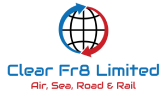Customs Clearance Southampton
Customs clearance at the Port of Southampton is an essential part of the import and export process. The port, which is one of the busiest in the UK, handles a wide range of cargoes from all over the world, including containers, RoRo (Roll-on Roll-off) vehicles, and bulk commodities.
Customs clearance involves a series of processes that ensure that goods entering or leaving the UK comply with the relevant regulations and that the correct taxes and duties are paid. The customs clearance process at Southampton port is managed by HM Revenue and Customs (HMRC), who work closely with the port authorities and other stakeholders to ensure that cargo is cleared quickly and efficiently.
Customs clearance is a crucial part of the import and export process, ensuring that goods entering or leaving a country comply with relevant regulations and taxes and duties are correctly paid. At Southampton port, one of the busiest ports in the UK, customs clearance is an essential process that must be followed for all cargoes entering or leaving the country.
The customs clearance process at Southampton port involves several steps, beginning with the arrival of goods. When a shipment arrives, the port authorities first verify that the shipment complies with safety and security regulations. Once this check is complete, the shipment is moved to a designated area for customs clearance. This area is usually a secure location where the cargo is kept until customs clearance is complete.
The next stage of the customs clearance process involves customs processing. This stage includes verifying the documentation provided by the importer/exporter and checking the cargo for any prohibited or restricted items. Customs officers may also conduct physical inspections of the cargo if necessary. This stage can take varying amounts of time depending on the complexity of the shipment and the volume of cargo being processed at the port.
During customs processing, HM Revenue and Customs (HMRC) officers review the documentation provided by the importer/exporter to ensure that it is accurate and complete. This documentation includes a range of information, such as the value of the goods, the country of origin, and any applicable licenses or permits. HMRC officers also check the shipment for any prohibited or restricted items, such as narcotics or weapons, that are not allowed to enter the UK. If any discrepancies or issues are found, the importer/exporter will be notified and may need to provide additional information or documentation.
Southampton is one of the busiest ports in the UK, handling over 32 million metric tons of cargo annually. It has a deepwater port and is capable of handling some of the largest container ships in the world. The port is strategically located, making it an ideal gateway to the UK and the rest of Europe. It has excellent road, rail, and waterway connections, making it a key hub for international trade.
T1 Documents
T1 documents are an essential part of the international shipping process, and Clear Fr8 Limited has a team of experienced agents who are well-versed in the various procedures and regulations. They work closely with importers and exporters to ensure that all the necessary documents are prepared and submitted in a timely and efficient manner. This helps to prevent any delays or penalties that may arise due to non-compliance with customs regulations.
DOCUMENT REQUIREMENTS
- Certificate of Origin
- Packing List
- Bill of lading
- Commercial Invoice
- Customs Clearance

